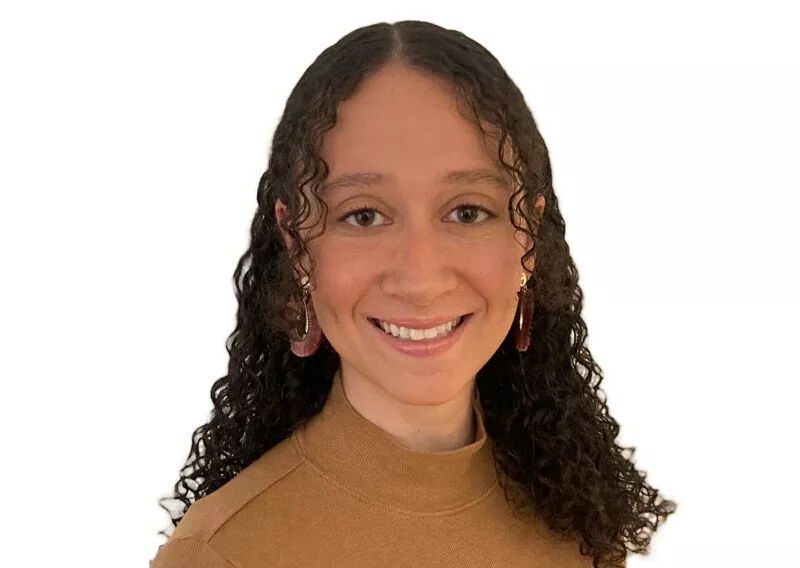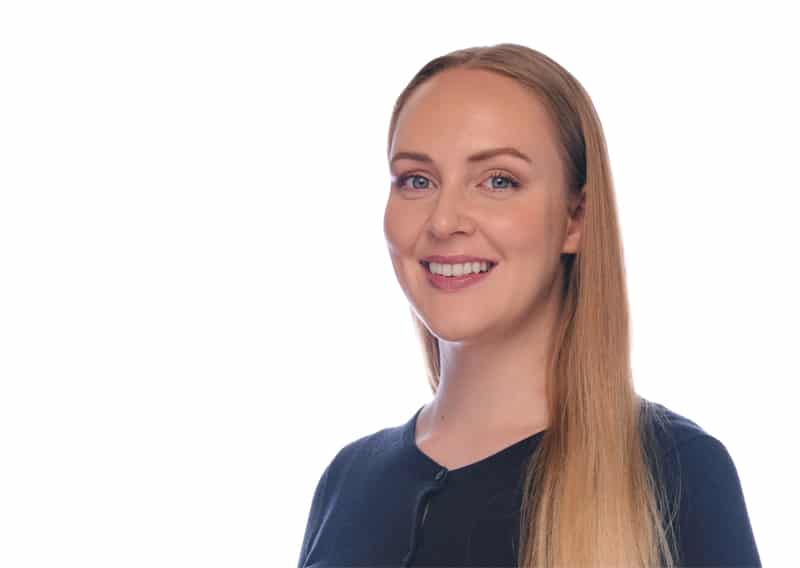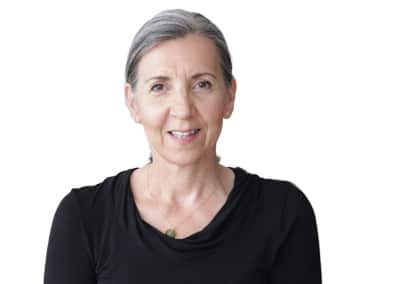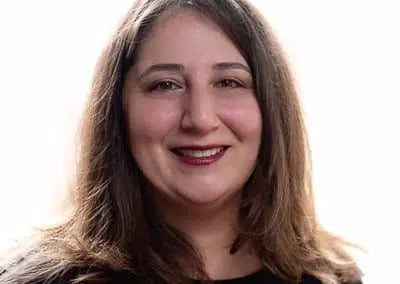
Questions About Therapy:
What Kind of Therapist Do I Need?

Dr. Lisa Marie Bobby is a licensed psychologist, licensed marriage and family therapist, board-certified coach, AAMFT clinical supervisor, host of the Love, Happiness, and Success Podcast and founder of Growing Self.
Takeaways: Starting therapy can be the first step toward a happier, healthier life, but who you choose to work with will make a big difference in your results. That’s why “What kind of therapist do I need?” is one of the most common questions about therapy for new clients. Learn how to choose the right therapist for your goals so you can get the results you’re looking for.
- Therapy for mental health
- Therapy for grief and loss
- Therapy for better relationships
- Therapy for happiness and fulfillment
- What kind of therapist do you need?
Wondering what kind of therapist you need? You should search for a therapist who not only has good credentials and an evidence-based approach (that should be a prerequisite!), but someone with a track record of helping clients like you.
A prospective new therapist may have graduated from the best program and they may come with rave online reviews, but if they specialize in treating eating disorders when what you really need is help with depression, working with them will probably be a waste of your time and money — not to mention a missed opportunity to get the support you actually need.
To connect with the right therapist and avoid the wrong ones, you’ll first need to get clear about a couple of things:
- What are your goals for therapy?
- What kind of therapist can best help you achieve them?
That first question is one you’ll have to answer on your own. Once you do, here’s some information that I hope will help you answer the second.
Therapy for mental health
If you’re struggling with symptoms of a mental health condition, to the degree that it interferes with your ability to function on a daily basis, your first goal for therapy should be symptom reduction. Therapy works well for this. Look for a Licensed Psychologist (LP) or a Licensed Mental Health Counselor (LMHC) who specializes in helping clients with your particular condition get relief from their symptoms, using effective, evidence based forms of therapy.
Of course, at your first therapy appointment, you may not realize that the thoughts, feelings, or behaviors you’re experiencing are symptoms of a mental illness. Or you may believe you have one disorder and later learn it’s something else. If so, that’s okay. Therapists are trained to spot signs of mental illness you may not be aware of yet. If your condition is outside your chosen therapist’s expertise, they should direct you to a specialist who can help.
The particular form of therapy you need probably won’t be obvious at the outset, and that’s okay too. Most therapists use an integrative approach, drawing on different therapeutic tools to address different needs. Those needs can shift over your time in therapy, and a good therapist will be able to update their approach as you make progress. A therapist may start with Cognitive Behavioral Therapy (CBT) to treat a client with alcoholism, for example, and then begin to incorporate a more open-ended, psychodynamic form of therapy to help the client understand the circumstances that led them to addiction in the first place.
Therapy that’s aimed at reducing symptoms is likely to feel a little different from other therapy you may have tried in the past. While traditional talk therapy is great for uncovering interesting personal insights and building self-awareness and self-love, it’s not particularly useful for treating conditions that need a more structured approach, like PTSD or bipolar disorder. In addition to therapy, you may be referred to a psychiatrist who can prescribe medication to manage your symptoms. Once you’re feeling better, you can transition to a form of therapy or coaching that’s more focused on personal growth or other goals.
While it’s always important to choose a therapist with an effective, evidence-based approach, it’s never more important than when you’re struggling with a mental health disorder. This is not the time to get involved with a dream analyzer, or a past-life regressionist. Mental illness can be as life threatening as physical illness, and it requires real treatment based on real evidence.
Let’s Talk.
Schedule a Free Consultation Today.
Therapy for grief and loss
Sometimes after we experience an especially painful loss, our friends and family can’t be the support system we need. They may be awkward around our grief, and we may feel like we’re burdening them by continuing to talk about how terrible we feel, for months or even years after the event. They may not recognize the magnitude of our loss, particularly if it’s over a breakup, or the death of a pet. Well-meaning loved ones may tell us to cheer up, do some yoga, or read a self-help book, rather than listening, validating our feelings, and empathizing. They may even be overwhelmed by grief themselves, if it’s a loss that affected them.
Grief and loss are an unavoidable part of life, but they’re incredibly difficult to navigate alone. Many people enter therapy because they need a place where it’s ok to not be ok, where they can cry and work through the pain of loss, whether after the death of a loved one, the end of a relationship, or even the loss of a cherished dream.
Clients who are in the throes of grief can benefit from a gentle, introspective approach to therapy that gives them the space to process their painful feelings so they can begin to heal. A therapist who specializes in this form of therapy may use terms like “Rogerian,” “client-centered,” or “humanistic” to describe their approach.
After a painful, life-altering event, therapy can serve as a container for difficult emotions. Having a place where it’s ok for you to express how you feel, without any pressure to put a positive spin on it or to heal on someone else’s timeline, can be really beneficial and can help you let go of some of those feelings. Sitting with a therapist who listens to your experience, empathizes with your feelings, and affirms that what you’re going through is indeed terrible, can be remarkably healing all on its own. And once your grief or heartbreak has become more manageable and you’re able to make meaning of it, your therapist can help you adjust to life after the loss.
Therapy for better relationships
If your goal for therapy is to have better, more secure relationships, look for a Licensed Marriage and Family Therapist (LMFT). Unlike other kinds of therapists, marriage and family therapists have years of specialized training and experience in helping people improve their relationships, as well as how to treat mental health issues through systemic family therapy.
You can see a marriage and family therapist either with your partner or on your own, if your partner isn’t ready to join you. Even without your partner present, you can begin doing the work in therapy to improve how you show up in the relationship, which will naturally affect how your partner reacts to you as well. If one or both of you is dealing with deeper issues or historical mental health diagnoses, working with a marriage and family therapist can help you learn how to work together to create mental and emotional health in your relationship, your family, and in yourselves.
An LMFT can do more than treat mental health conditions. They will have significant training and experience helping couples and families build happier, healthier bonds. They can also help you recover from infidelity, become more vulnerable with your partner, work through trust issues, or create a more secure attachment, among other things. Unlike all other breeds of therapists, who focus on the person before them and the maladaptive patterns that may be holding them back, LMFTs are trained to understand clients both as individuals and as part of larger relationship systems. This systemic approach can help you and your partner understand why you react to the people around you in the way that you do, what effect you have on others, and the internal factors influencing how you act in relationships.
If your goal for therapy is to work on a very specific relationship goal, like improving your communication, or boosting your emotional intelligence, you may be better off working with a marriage and family therapist who provides relationship coaching. An MFT serving you as a coach will take a more direct approach than they would as a therapist, focusing more on creating a plan of action to help you get the results you want, and less on analyzing your family of origin, helping you work through painful feelings, or turning trauma into growth.
If you do choose to work with a relationship coach, the coaching process — similar to therapy — begins with a period of talking about what’s going on in your relationship, how you’re feeling about it, and what would help you both feel more loved and respected. This helps you get clarity about what you really want before working toward goals, and helps your coach get to know you and what you value before jumping in and making recommendations. However, once that understanding is in place, you can shift your focus away from the “why” and into the “how” of creating the changes you wish to see in your relationship.
If you or your partner are experiencing symptoms of a mental health condition, you should find a licensed marriage and family therapist, not a relationship coach. Coaching is never intended to diagnose or treat mental illness, and working with a coach when you really need therapy can do more harm than good. You can read more about the difference between relationship coaching and couples therapy.
Let’s Talk.
Schedule a Free Consultation Today.
Therapy for happiness and fulfillment
Many people enter therapy not knowing exactly what “the problem” is, or what they need. Many people begin therapy with a vague feeling of stuckness, or a sense of dissatisfaction with one or more areas of their life, but unsure what exactly the problem is. They may be insecure and unsatisfied with their relationship, but questioning whether they’re simply with an inherently difficult or selfish person, or if something inside of them is getting in the way of the love and appreciation they have for their partner. Or they may feel bored and uninspired at work, but not sure if they’re in the wrong job, or if the problem lies with their expectations.
If something is gnawing at you, preventing you from feeling fully happy with your life, it’s worth figuring out. Working with a therapist may uncover the fact that you’re experiencing symptoms of major depression, or have a generalized anxiety disorder and you’ll feel much better once you begin treating it.
Or you may discover that you do not have an underlying mental health issue, but rather normal, healthy feelings leading you towards making some changes in your life. It may be that you need to make an external change, like switching jobs, ending a relationship, or moving cities. Being honest with yourself is challenging, but it’s the first step in becoming more self-accepting and empowered.
But in each of these situations, you might benefit more from getting help from a different kind of therapist. For example, if the root of the issue is depression, anxiety, or another mental health condition, you’d get the most benefit from working with a licensed mental health professional who uses an evidence based approach to swiftly and effectively treat psychiatric conditions. However, if your feelings of dissatisfaction are being caused by the need for positive change, a less pathologizing approach would be more helpful for you. Working with a therapist who has a positive, strengths-based approach focused on personal growth will likely feel better than working with one who’s focused on “symptom reduction.”
Similarly, if you are thinking about therapy because you want to work on yourself and create better outcomes in your life, working with a life coach can sometimes be a more direct path toward creating a happier, more fulfilling life, career, and relationships. While good coaching certainly does honor your past and provide you with new self awareness, it tends to be more future focused and action oriented than therapy.
If you choose coaching over therapy, it’s important that your coach begins with a reflective assessment period, so that you can develop an understanding of what you value and what you need before getting to work on any specific goals. Choosing a coach who is also a licensed mental health professional will ensure that they can catch any mental health problems that may be the true barriers to your happiness, and direct you to the appropriate treatment.
What kind of therapist do you need?
The type of therapist that you need depends entirely on what you want to talk about in therapy, whether they be alleviating symptoms, improving your relationship, or figuring out what it is you want out of life. What matters is that you choose a qualified professional with the education, training, and experience to solve the problem you’re trying to solve so your therapy will be a success.
A therapist with a clinical mental health background and expertise in treating your specific diagnosis through evidence based forms of therapy is the best choice if you’re dealing with a mental health issue. If you are seeking help for your relationship, look for a marriage and family therapist. If your goal for therapy is personal development and to create positive change, look for a therapist who provides coaching. (And if you want to talk through a specific problem and get a feel for the difference between coaching and therapy, you can try a one-time coaching solution session.)
In our practice, we specialize in helping our clients create love, happiness and success. The therapists of Growing Self typically specialize in either marriage and family therapy or career counseling, and can provide therapy services as well as coaching. If you’d like to meet with one of our experts to discuss your hopes and goals for potentially working with us, you’re invited to schedule your free consultation with one of our positive, growth-oriented experts.
I hope this information helps you find the right type of therapist for you!

Dr. Lisa Marie Bobby is a licensed psychologist, licensed marriage and family therapist, board-certified coach, AAMFT clinical supervisor, host of the Love, Happiness, and Success Podcast and founder of Growing Self.
Meet a Few of Our
Expert Therapists
Meet Our Team
Linda P.
M.A., LMFT
Thriving Personal & Professional Relationships
Meet Linda: a relationship expert and certified emotional intelligence coach with a unique blend of professional experience as a marriage counselor, executive coach, leadership coach, life coach, and therapist. She's here to help you understand yourself and others, improve your communication, increase your emotional intelligence, and cultivate positive relationships — both personally, and professionally.
Silas H.
M.S., LMFT
A Partner in Growth for Individuals & Couples
Meet Silas: a couples counselor, therapist, and life coach with an easy-going, humorous, and down-to-earth style that makes personal growth work both enjoyable and effective. His tireless support, encouragement, and expertise help you stay motivated to make real and lasting change in yourself and your relationships.
Dr. Rachel D.
DMFT, LMFT
Expert Care for Your Relationship
Meet Dr. Rachel: a relationship coach and marriage and family therapist with a warm personality and productive approach. She helps you and your partner restore trust, deepen intimacy, reconnect emotionally, and transform your shared life through the healing power of a healthy partnership.
Talia R.
M.S., MFTC
Straightforward, Open-minded & Action-Oriented
Meet Talia: a relationship specialist whose warm, collaborative approach guides you toward deeper exploration, connection, and understanding. With her authentic and straightforward style, she can help you gain the clarity and skills to cultivate the life and relationships you desire.
Jenna P.
M.A., LPC, LMFT
Insightful, Welcoming & Productive
Meet Jenna: a supportive marriage counselor, couples therapist, individual therapist, and life coach with a friendly, light style and a great sense of humor. She uses effective, evidence-based techniques to help you build understanding for yourself and your partner, increase intimacy and connection, and achieve your most important goals.
Emily B.
M.S., LMFT
Dedicated to Your Empowerment
Meet Emily, a couples counselor, relationship coach, individual therapist and life coach with a positive, empowering approach to helping you create the change you desire. Emily believes that we each have the seeds of wisdom inside of us — and that with the right support, you can cultivate greater well-being, love, and success.
Dr. Ben J.
Ph.D., LMFT, LCMFT
Healthy Relationships, Happy Life
Meet Dr. Ben: a couples counselor, premarital counselor, individual therapist, and life coach who helps you activate your inner strengths to create better relationships and a fuller life. His collaborative, friendly style makes him easy to talk to, and his action-oriented mindset helps you get results.
Kanya D.
M.A., LMFT
Inspired Life, Inspired Love
Kanya is a licensed marriage and family therapist, individual therapist, life coach, and parenting coach with more than 20 years of experience helping couples develop deeply loving and satisfying relationships, helping parents and families thrive, and helping individuals reclaim their happiness.
Dr. Paige M.
PhD, LMFT
Kind, Encouraging & Insightful
Dr. Paige is a friendly and enthusiastic therapist who is passionate about you living a meaningful, joy-filled life based on your true values. She's a big believer in the transformative power of vulnerability — and helping you build a brave space where you can connect deeply with the people you love most.
Kensington O.
M.S., LMFT
Compassionate, Present, and Supportive
Meet Kensington: a couples counselor, premarital counselor, individual therapist, life coach, and breakup recovery counselor. With compassionate understanding and unique insights, Kensington helps you move past the past and improve the most meaningful parts of your life — from your emotional well-being to your relationships.
Elizabeth B.
M.A., LMFT
Emotionally-Focused, Authentic & Understanding
Meet Elizabeth, a couples counselor and individual therapist who uses evidence-based approaches in her emotionally-focused work with clients. She believes in your potential for profound healing and growth. She will help you cultivate self-compassion and emotional wellness, so you can build the life and relationships you deserve.
Roseann P.
M.S., LMFT
Open Heart, Wise Mind
Meet Roseann: an empathetic and intuitive marriage and family therapist, individual therapist, and life coach. Through authentic connection and a down-to-earth demeanor, Roseann guides you toward clarity and well-being. Using mindfulness and values-driven action, she helps you overcome challenges and create fulfillment in all aspects of life.
Alejandra P.
M.A., LMFT
Dynamic, Transformative & Compassionate
Alejandra is a true expert at nurturing your positive transformation — helping you to find happiness in your life and fulfillment within your relationships. She will help you break free from old patterns that are getting in the way of the life you want, and then chart your pathway to achieving your most important goals.
Brittany S.
M.A., LMFT
Compassionate Care For You & Your Relationships
Meet Brittany: a couples counselor, individual therapist, premarital counselor, and a life and relationship coach with a warm, authentic, emotionally-focused approach. She works with you to build deeper connections, restore emotional bonds, and grow in your capacity to love and be loved.
Georgi C.
M.S., LMFT
Nurturing Healthy Families & Happy Relationships
Meet Georgi: a warm, compassionate, Arkansas-based marriage counselor, individual therapist, and family therapist who creates a safe and supportive space for you to find meaning in your struggles, realize your self-worth, and cultivate healthy connections with the most important people in your life.
Jesse S.
M.S., LMFT
Approachable, Direct & Warm
Jesse is a licensed marriage and family therapist who excels at creating a judgment-free environment where growth and healing flourish. He can help individuals and couples create deeper, more satisfying relationships, navigate major life transitions, manage stress, and lead happier, more fulfilling lives.
Tania C.
M.B.A., M.A., LMFT (she/her/hers)
International Love, Life, & Career Coach
Meet Tania: a relationship coach, career coach, dating coach, and executive coach with a unique blend of experience, education, and training, and a nuanced cross-cultural perspective. As a relationship expert and a career expert, Tania can help you build passionate and fulfilling relationships while thriving in your professional life.
Meagan Terry
M.A., LMFT
The Relationship Specialist
Meet Meagan: an experienced Licensed Marriage and Family Therapist who specializes in helping you create happy, healthy, joyful relationships. She's an expert marriage counselor, emotional intelligence coach, premarital counselor, and dating coach who uses effective therapeutic approaches to help you create a lifetime of love.
Ronni M.
M.A., LPCC
Illuminate Your Possibilities
Meet Ronni: a career counselor, life coach, and individual counselor with a caring personality and a flare for adventure. Whether you want to embark on a new career path, work on personal growth goals, or pursue greater life satisfaction, she’s here to support and motivate you to create positive change.
Dr. Tuyet
Ph.D., LMFT
Committed to your Happiness and Success
Meet Dr. Tuyet: a highly compassionate and experienced licensed marriage and family therapist. Dr. Tuyet uses an evidence-based approach to equip you with the tools you need to build the life and relationship you really want. She will empower you to dig deep, take risks, and weather life's transitions with ease and grace.
End of Members
No more pages to load
The therapists and life coaches of Growing Self have specialized education and training and years of experience in helping people achieve their personal and professional goals. We use only evidence based strategies that have been proven by research to help you get clarity and direction, have better relationships, feel happier, and design your ideal life.
This website is devoted to your wellbeing, and offers loads of free information and actionable advice that you can start using today to create positive change in your life. Browse around to meet our experts, get free advice on our blog, listen to a podcast, or take our “How Healthy is Your Relationship” quiz.
Or, if the time is right, you can schedule a free consultation with any of us to talk about your situation — and, most importantly — your hopes for your future.
Let’s Talk.
Schedule a Free Consultation Today.
Therapy Questions, Answered.
Support For Your Growth
Our expert therapists have generously created an entire library of articles, activities, and podcasts to support you on your journey of growth. Please visit our “Happiness Collections” to browse our content collections, and take advantage of all the free resources we have for you. Or, if you’d like to educate yourself about the process and logistics of therapy, please help yourself to our “therapy questions” knowledge base below. It’s all for you!
Do I Need Therapy?
Wondering if your issues going to work themselves out, or is it time to talk to a professional? Here’s how to tell when it’s time for therapy.
Therapy Works, But How?
Great therapy can feel like magic, but it’s actually not. Learn how meaningful and effective therapy works.
What is Therapy Like?
What is therapy like? Learn what happens in therapy in order to feel empowered and confident.
What Kind of Therapist Do I Need?
There are many different kinds of therapists and many different types of therapy. What kind of therapist do you need? Find out!
What To Talk About in Therapy
Not sure what to talk about in therapy? Here are some tips to ensure you get the most out of your therapy sessions.
Therapy Consultation: What to Expect
How to prepare for your first therapy appointment, and learn what to expect in therapy sessions.
Coaching vs Therapy
What’s the difference between coaching and therapy? Find out which approach is right for you.
What is Cognitive-Behavioral Therapy?
Cognitive-behavioral therapy is the “gold-standard” of effective, evidence-based therapy. Learn about CBT.
What is Talk Therapy?
How does talking about something help you make changes? Or… does it? Learn the pros and cons of traditional talk therapy.
Why Evidence-Based Therapy Matters
Effective therapy is life-changing, but some therapy is a waste of time and money. Evidence-based therapy makes the difference.
How to Find a (Good) Therapist
Not all therapists are the same. Learn how to find a good therapist (and spot the warning signs of a bad one).
Therapy For Healthy Relationships
Working with a true relationship expert helps you learn, grow, love, and be loved.
Learn about our approach to helping you build healthy relationships.
Guide to Online Therapy
Online therapy is just as effective but even easier than in person therapy. Here’s what to expect from good online therapy.
Denver Therapist
Explore your options for a Denver therapist who specializes in personal growth and healthy relationships.
How to Get a Therapist
Ready to try therapy? Here’s a comprehensive guide on how to get a therapist who is competent to help you.
Therapy Reviews
Curious to know more about what working with us is really like? Browse Growing Self reviews / “best online therapy reviews” from our clients.
How Much Does Therapy Cost?
Good therapy is priceless, but not all therapy is valuable. Learn the cost of therapy that’s affordable and effective.
Does Insurance Cover Therapy?
Yes, insurance covers therapy… but only sometimes. Learn when (and how) health insurance covers therapy, and when it doesn’t.
Help Someone Get Help
If you have a loved one who is struggling in their relationship, you can help them get help by “gifting” therapy. Here’s how…
Divorce & Breakup Recovery
Losing a relationship is uniquely painful and challenging. With the right support, you can heal, grow, and move forward. Learn about our divorce and breakup recovery services.
More Questions? Let’s Talk.
We’re available by phone, email and chat, and happy to answer any of your questions personally. Get in touch, anytime.
Start Therapy
Start your journey of growth today. Get personalized recommendations, and have a free consultation meeting with the therapist of your choice.

























